Tag: exercise
THE SEEDS OF GREATNESS.

If you can muster up the courage, energy, and persistence to plant the following seeds of greatness into your daily routines, you will be well on your way to becoming your greatness.
1 – Be Hungry For More
The first seed of greatness is that you must be hungry for more. To truly tap into your greatness, you need to have some ambition. At a minimum, you must be driven to be better than your former self. If your greatness is the ever-expanding concept of your potential, you must have an internal urge to become your best.
As you change and grow as a person, your personal concept of greatness will change and grow as well. And so long as you are hungry and driven to realize that better you, you place yourself on the path of greatness.
Be hungry to exceed your own expectations.
2 – Pay Attention
Your greatness is relevant to your imagination and your will to realize that ideal.
However; all too often we get so busy that we fail to recognize that we can become more. We let life distract us. And being distracted, stuck in the day-to-day monotony of making a living will stifle our ability to grow.
As such, a primary rule for unleashing our greatness is related to paying attention. Essentially, we must become more aware, aware of ourselves, our trajectory, our lives, and our place in it.
And to become more aware, we must practice mindfulness. So how does one practice mindfulness? Well, mindfulness can be practiced by taking time each day to think about your life. Some of the best ways to do this are the following: mediation, long-walks, solitude, and going for a drive. These are just a few ways that you can practice mindfulness, but it is by no means an exhaustive list.
3 – Strive Your Face Off
If you want to reach your greatness, you are going to have put in a lot of work. You must plant the seed in your mind, that greatness requires effort. Know, that your best self will not appear out of the blue just because you can imagine it.
Michael Jordan practiced 5 to 7 hours a day throughout his life. He had to train and practice to show up as the person we’ve all come to admire.
Pablo Picasso painted 13,500 paintings, created at least 100,000 graphic prints and engravings, produced 34,000 book illustrations, and designed over 300 sculptures.
Prolific writer, Paulo Coelho has written 34 books since 1974, and wrote 4 books in one year alone.
Bringing your best self into the world will be no different. It is going to take hours and hours of practice and tons of action and extra effort to make it happen.
Just like metal needs forging to be formed into a desired shape, so too will your greatness require concentrated effort to mold and make.
4 – Experiment
Habitual experimenting is a seed of greatness. Some of the best inventions, recipes, and businesses have come to existence due to experimentation.
As you’ve probably already know, it took Thomas Edison over 1,000 experiments before he realized his vision of the working light bulb.
Henry Ford experimented with businesses and had 5 businesses fail before one took off.
Similarly, the delicious meals and drinks we get to enjoy at our favorite restaurants are the results of endless experimentation’s.
All in all, if we want to unleash our greatness, we must be willing to try new things, take different approaches, we must be willing to experiment.
5 – Quantity Vs. Quality
This rule is related to the last two, but it is different as it relates to not just taking action, but to ensuring that we are shipping or completing our creations. It is necessary that you get your talents, ideas, and gifts out there to benefit the world.
To realize your greatness, you must get bits of it out into the world. Not just for the sake of getting something out there, but in order that it may serve other people.
The more we can put out into the world, the better. Sure, some of our ideas, creations, or whatever, may not be of the highest quality at first, but you can always improve quality over time.
The most important part is just getting your great stuff out there. Because the quality of what you have to offer the world will improve as you provide it. So start shipping your greatness today!
6 – Always Be Learning
A.B.L, Always Be Learning is the next seed of greatness. One of the easiest ways to become more, is to learn more. The more we learn, the larger our capacity for growth becomes.
Why you ask? Well, recall my new and improved way of looking at greatness, which was “as a personalized reference point, limited only by the imagination and ambition of the person considering it.” In doing so, notice the words “limited only by the imagination” of the person considering it.
When we learn more, our ability to comprehend and imagine what is possible grows, as such, continual learning is vital to reaching our greatness.
7 – Time Travel
The last seed of greatness, Time Travel. If you time travel, you will position yourself to realize more of your greatness. Of course, I am not talking about actual time travel here, (which would be cool) but rather, I am talking about mental time travel.
In other words, time travel as it relates to our ability to look forward into the future using our imagination.
To time travel in this sense, try to envision yourself as the greatest at what you have a passion for doing. Try to envision the best version of yourself, or your ideal self.
When you do this, you’ll be stretching your mind and creating a void to be filled in by action. The action that is necessary for building the foundation that your future greatest self will soon rest upon.
Time travel in this sense can also help you make those big life altering decisions easier. Jeff Bezos once mentioned a form of mental time travel he used to tap his greatness, but he called it a ‘regret minimization framework.’
In his example, he projected himself forward to the age of 80 and asked himself a series of questions at that point, on what he would or wouldn’t regret. The answers that came to him are what propelled him to act on those ideas that were most aligned with his greatness.
And if you know anything about Jeff Bezos, you’ll know he made the right choice. A choice that unleashed a multi-billion-dollar business empire.
So, if you want to fortify your capacity for greatness, close your eyes and take a leap into your imagined future.
Conclusion
To live one’s greatest life….to achieve one’s greatness, a lot of hard work will be involved, a lot of discipline as well. Determination is going to be needed, you will without a doubt, need to tap new levels of courage.
Failure will happen, and you’ll have to show some serious resolve! But, if you’ll simply start sowing your seeds of greatness, everything will change for you.
When you begin baking these 7 Seeds of Greatness into your pursuits, you will be poised to unleash your greatness, and with that, your amazing future.
Till next time…
STRIVE
P.S.
Which seed of greatness do you feel most resonates with you?
You Should Never Give Up On Your Dreams No Matter What!

There comes a time in most entrepreneurs’ lives when the challenges seem overwhelming. You’ve suffered consecutive setbacks and sometimes, you seriously consider throwing in the towel.
You question yourself. Maybe you don’t have what it takes after all? Maybe your breakthrough idea just isn’t realistic? Maybe you should quit now, rather than continue to make a fool of yourself. Self-doubt leeches onto your heart and soul, and despair begins to take over.
It happens all the time, but I’m here to tell you why you should never ever give up on your dreams. Consider these six reasons:
1. What’s the alternative?

If you give up now, what are your options? Where will you be in life? Adrift? Aimless? Imagine how that will make you feel. Perhaps there’s a particular product or service you’ve launched that is plainly not going to be “the one” that leads you to extreme success. Regard it as nothing more than a detour on your journey to success.
We all get sidetracked from time to time and, although you probably can’t identify a reason why right now, there’s probably a good reason Opportunity #1 didn’t work out. But, once Opportunity #10 or Opportunity #20 proves successful, you’ll realize why. Consider the billionaire author, J.K. Rowling, who created the “Harry Potter” series. Her idea was rejected 12 times before someone finally gave her a chance. Ultimately, perseverance paid.
2. Mistakes happen.
There’s not a straight line to success. You’re going to hit bumps in the road that will feel like mountains. But, you can get over them. In fact, making mistakes is necessary to creating a successful company. If you’re not making mistakes, you’re not experimenting. You’re not trying new approaches. You’re not going anywhere. They key thing is to make sure that you learn from the mistakes.
We’ve all heard stories about famous figures who have failed numerous times. Abraham Lincoln, for one, failed to win several positions before becoming president of the United States. Another example, Walt Disney, had to close businesses en route to worldwide success.
And, just last year, while most Americans were relaxing on Labor Day, 64-year-old Diana Nyad became the first person to swim the shark-invested waters between Cuba and Key West — some 110 miles —without a cage for protection. She succeeded after her fifth attempt in 35 years but says she learned something new from each of her failed efforts. Can you imagine what it takes to make that physical and mental journey? Failure is a necessary part of the journey, but it’s never the end until you decide to quit.
3. You need passion in your life.

If you give up on your dreams, you’re living a life unfulfilled. I can’t imagine not being passionate about something. Do you really believe you can build a large company and help tens of thousands of people if you have a wishy-washy approach and don’t feel strongly about your personal endeavors? If you don’t have a mission — if you don’t have a purpose — are you wasting potential? Live life with purpose and you will never be bored. Absolute conviction is everything.
4. Anything can happen.

Don’t give up today because the breakthrough you need might happen tomorrow. All of the hard work you invest in yourself will pay off in the long run. It may well be that you’re running in a marathon despite the fact that you were only expecting a short sprint. If you’re at the point of giving up, give it another shot. “Hail Mary’s” exist for this. And then, repeat this every day.
5. The joy of success.

Most of all, don’t surrender your precious dreams, because one day, you will achieve them. And, when you do, the ecstasy will make all of the agony so worthwhile. Imagine being able to celebrate with your family and friends who have been rooting for you — think about the pleasure you will all feel.
Crossing the finishing line and realizing that you completed your goal will provide for an indescribable sense of accomplishment. So, go for it and don’t quit because you certainly don’t want to miss out on the experience of savoring the success.
6. Proving them wrong.

Last, but not least, don’t give the naysayers the satisfaction of seeing you give up on your dreams! There’s nothing wrong with wanting to prove them wrong. It’s quite common to have dream-stealers infiltrate your life. It might be colleagues or business acquaintances or even (sadly) family and friends. They are negative influences who sow seeds of doubt.
I’ll never forget when I was trying to raise capital for my previous business, BlueLithium. There was a general partner of a big firm who lectured me for 10 minutes and said, “Your chances of success are pretty much zero.” Of course, that only invigorated my drive; I can’t help but wonder how he felt when I sold the company for $300 million a year later — I was delighted to prove him wrong. Cheers to those who doubted you because eventually, they will want to be part of your team.
Dreams are essential for an entrepreneur, and with determination, you will achieve them. The road is never an easy one, but it’s absolutely worth it. Your dreams are only awake if you are.
10 reasons hiking is good for your soul (and why you should start hiking today!)
There’s a truckload of research out there telling us that hiking is good for us. As a form of exercise, there’s nothing like a brisk climb to get your heart rate up. Check out this great infographic.
Physically, the benefits are numerous. Getting outside for even a short hike regularly can reduce your risk of heart disease, lower blood pressure and cholesterol and help to prevent type II diabetes.
Hiking makes you strong. And it doesn’t just work your legs. Clambering over uneven surfaces and navigating your way around rocks, fallen trees, across streams and over tree roots engages your core and works your upper body for a true holistic work out.
But the physical benefits are almost incidental to how hiking can contribute to your overall mental health and well being.
“It’s not the mountain we conquer, but ourselves.”
This isn’t a ‘get fit and lose weight in 30 days’ post. It’s 2020 people and it’s about time we focused on more than aesthetics. Health is more than cardio and strength conditioning, and our New Years resolution reflects that (hike more, worry less!). Here are ten reasons hiking is good for your soul (and why your should start hiking in 2020)
1. Hiking clears the mind and reduces stress
Our lives are busier than ever. Nine to five jobs, full social calendars and everyday life admin is enough to keep us at a permanent level of stress below the surface. Going for a hike reduces your blood pressure and cortisol levels producing a calming effect only nature can offer – over an above the benefits of exercise alone
2. Hiking makes us happier
Getting out into nature decreases what psychologists call ‘rumination’, which are negative thought patterns that play over and over in our heads such as dwelling on embarrassing or disappointing moments or thinking about everything we think is wrong with our lives. Never underestimate the ‘happiness effect’ of being outdoors.
3. Hiking improves sleep quality
Walking or climbing over uneven terrain uses 28% more energy than walking over flat ground. You are also removing all the new age stimuli that we often expose ourselves to throughout the day and right before bedtime (phones, computers, TV’s and the like). The result? Better sleep!
4. Improve your memory through hiking
Studies have shown that people who regularly spend time in natural settings, hiking or otherwise, have improved memory and recollection. So if you’re rubbish at sudoku like me, just grab your boots and hit the track!
5. Hiking reduces anxiety and depression
Associated with the benefits of lowering stress levels, hiking has been proven to reduce anxiety by quietening the mind and allowing you to zone in on your breathing to a part meditative state. For natural stress relief and an instant mood boost, head outdoors.
6. Got a problem to solve? Go for a hike
Researchers believe that all the extra mental stimulus and information bombardment we are faced with daily overwhelms our brains resulting in reductions in our cognitive resources, limiting our creativity and problem solving abilities. Getting out into nature away from these stimuli restores our depleted attention circuits, freeing up more brain power for creativity (so leave the gadgets at home!).
7. Hiking makes us more generous
Whenever we hike tracks or trails for the first time, or stumble upon an absolute gem of a natural feature, we always return home with a renewed appreciation for mother nature and her bounty. The corresponding increases in positive emotions actually makes us feel a heightened sense of gratefulness andincreases our generosity towards those around us.
8. Reconnect and take time for yourself
When you find yourself caught up in the race, going for a hike is a chance to reflect, recharge and reconnectwith yourself when you’ve been too busy to take notice. Sometimes just taking some time out and tuning into yourself can help you identify if you’re feeling a little under the weather, or have been more stressed than usual.
9. Hiking with friends
Hiking alone can be a spiritual and rejuvenating experience, but hiking with friendsand sharing the experience can bring you closer together to form stronger bonds and create lasting memories.
10. Learn to live in the moment
When was the last time you really concentrated on being truly present and in the moment? The beautiful simplicity of getting out into nature removes that barrier between you and the natural environment. Everything is up close and real. No filters, just nature.
Challenge yourself and make it a goal this 2020 to go for hikes on a regular basis. Your soul will thank you for it.
we strongly recommend that if you are going to go on a long hike to go with a group just in case something happens you will have help.
CS BrainSense all benefits.
Click Here For More Information
CS BrainSense is designed to provide a solid nutritional foundation to help your brain and body perform optimally.
Our proprietary CSTek™ mineral delivery technology combines each mineral with organic molecules.
*These statements have not been evaluated by the Food and Drug Administration.These products are not intended to diagnose, treat, cure or prevent any disease.
Supplement Facts
Servings Size: 4 Veggie Capsules Serving Per Container: 30
SUGGESTED USE
For optimal results, take 4 capsules 3 times daily, or a level recommended by your health professional.*
Also acceptable to begin with 1 capsule twice a day, then increase gradually. Take with food. Store in a cool, dry place. Do not use if tamper-evident seal is broken
or missing.
Amount per serving % Daily Value*
Vitamin A (as retinyl palmitate) 1920 IU 38%
Vitamin A is a fat-soluble vitamin that also acts as a powerful antioxidant in the body. It plays a critical role in maintaining vision, neurological function, healthy skin and more. Like all antioxidants, it’s also involved in reducing inflammation through fighting free radical damage.
Vitamin A is found in two primary forms: active vitamin A (also called retinol, which results in retinyl esters) and beta-carotene. Retinol comes from animal-derived foods and is a type of “pre-formed” vitamin A that can be used directly by the body. The other type, which is obtained from colorful fruits and vegetables, is in the form of provitamin carotenoids. Beta-carotene and other types ofcarotenoids found in plant-based products need to first be converted to retinol, the active form of vitamin A, in order to be utilized by the body. Another form of vitamin A is palmitate, which usually comes in capsule form.
So what is vitamin A good for? Studies have repeatedly shown that antioxidants like vitamin A are vital to good health and longevity. They benefit eye health, boost immunity and foster cell growth. Nutrition experts and physicians recommend obtaining antioxidants primarily by eating a well-balanced diet high in fruits, vegetables and whole foods whenever possible rather than from vitamin supplementation to maximize the potential health benefits.
1. Protects Eye Health
One of the most well-known benefits of vitamin A is its ability to boost vision and keep your eyes healthy. This is because it is a critical component of the rhodopsin molecule, which is activated when light shines on the retina, sending a signal to the brain that results in vision. Beta-carotene plays a role in preventing macular degeneration, one of the leading causes of age-related blindness.
In fact, a study published in the Archives of Ophthalmology found that people at high risk for the disease who took a daily multivitamin that included vitamin A, vitamin C, vitamin E, zinc and copper had a 25 percent reduced risk of advanced macular degeneration during a six-year period.
2. Supports Immunity
Vitamin A plays an integral role in immune health and may be especially beneficial for warding off illness and infections. According to a review out of Baltimore, a deficiency in this key vitamin can weaken immunity and even alter the function of immune cells.
It’s believed that vitamin A deficiency blocks the regeneration of the mucosal barriers, resulting in increased susceptibility of infections. Interestingly, a 2014 study out of Colombia actually estimated that giving 100,000 children vitamin A supplements could save over $340 million in medical costs by reducing the incidence of serious conditions like diarrhea and malaria.
3. Relieves Inflammation
Beta-carotene acts as a powerful antioxidant in the body, helping reduce the buildup of harmful free radicals and prevent oxidative damage to cells while also blocking inflammation.
The anti-inflammatory effects of vitamin A and beta-carotene can have far-reaching effects on many aspects of health, as inflammation is at the root of many chronic conditions, ranging from cancer to heart disease and diabetes. Reduced levels of inflammation are also correlated with a lower risk for neurodegenerative diseases like Alzheimer’s and Parkinson’s as well as improvements of inflammatory conditions like rheumatoid arthritis and Crohn’s disease.
4. Keeps Skin Glowing
Often prescribed by dermatologists to fight acne and wrinkles alike, vitamin A is revered for its potent skin-enhancing properties. One study out of the University of Michigan Medical School’s Department of Dermatology even found that applying retinol topically to the skin significantly improved fine lines and wrinkles, plus increased the skin’s ability to withstand injury.
Due to its anti-inflammatory properties, such as retinaldehyde,vitamin A may also be useful in the treatment of a wide range of skin concerns. In fact, studies show that retinoids may be therapeutic for common skin conditions like psoriasis, eczema and acne.
5. Contains Cancer-Fighting Properties
With the growing body of research demonstrating a strong link between what you eat and your risk of cancer, it should come as no surprise that upping your intakes of vitamin A foods could help protect against cancer development. According to a review published in BioMed Research International, retinoids have been shown to block the growth of skin, bladder, breast, prostate and lung cancer cells in in vitro studies.
High doses of retinoic acid can be toxic to cells, so it’s best to include it through food sources in your diet to prevent or suppress cancer progression over time. Additionally, keep in mind that more is not always better, so moderate your intake to maximize the potential health benefits.
Vitamin C (as ascorbic acid) 200 mg 333%
Vitamin C (ascorbic acid) is a vitamin your body needs to form blood vessels, cartilage, muscle and collagen in bones. Vitamin C is also vital to your body’s healing process.
An antioxidant, vitamin C might help protect your cells against the effects of free radicals — molecules produced when your body breaks down food or is exposed to tobacco smoke and radiation. Free radicals might play a role in heart disease, cancer and other diseases. Vitamin C also helps your body absorb and store iron.
Because your body doesn’t produce vitamin C, you need to get it from your diet. Vitamin C is found in citrus fruits, berries, potatoes, tomatoes, peppers, cabbage, Brussels sprouts, broccoli and spinach. Vitamin C is also available as an oral supplement, typically in the form of capsules and chewable tablets.
People with gastrointestinal conditions and some types of cancer might be susceptible to vitamin C deficiency. Vitamin C is also used to increase iron absorption from the gastrointestinal tract. Severe vitamin C deficiency can lead to a disease characterized by anemia, bleeding gums, bruising and poor wound healing (scurvy). If you take vitamin C for its antioxidant properties, keep in mind that the supplement might not offer the same benefits as naturally occurring antioxidants in food.
The recommended daily amount of vitamin C for adult men is 90 milligrams and for adult women is 75 milligrams.
Evidence
Research on the use of vitamin C for specific conditions shows:
- Cancer. Eating a diet rich in fruits and vegetables might lower your risk of many types of cancer, such as breast, colon and lung cancers. However, it’s not clear whether this protective effect is related to the vitamin C content in the food. Taking oral vitamin C supplements doesn’t appear to offer the same benefit.
- Common cold. Taking oral vitamin C supplements won’t prevent the common cold. However, there’s some evidence that when people who regularly take vitamin C supplements get a cold, the illness lasts fewer days and symptoms are less severe. Starting a vitamin C supplement only after you develop a cold is of no help.
- Eye diseases. Taking oral vitamin C supplements in combination with other vitamins and minerals seems to prevent age-related macular degeneration (AMD) from worsening. Some studies also suggest that people who have higher levels of vitamin C in their diets have a lower risk of developing cataracts.
Vitamin D (as cholecalciferol) 1000 IU 250%
Vitamin D has multiple roles in the body. It assists in:
- promoting healthy bones and teeth
- supporting immune, brain, and nervous system health
- regulating insulin levels and supporting diabetes management
- supporting lung function and cardiovascular health
- influencing the expression of genes involved in cancer development
Read on to find out about these roles in more detail:
1. Healthy bones
Vitamin D plays a significant role in the regulation of calcium and maintenance of phosphorus levels in the blood. These factors are vital for maintaining healthy bones.
People need vitamin D to allow the intestines to stimulate and absorb calcium and reclaim calcium that the kidneys would otherwise excrete.
Vitamin D deficiency in children can cause rickets, which leads to a severely bowlegged appearance due to the softening of the bones.
Similarly, in adults, vitamin D deficiency manifests as osteomalacia, or softening of the bones. Osteomalacia results in poor bone density and muscular weakness.
A vitamin D deficiency can also present as osteoporosis, for which over 53 million people in the United States either seek treatment or face an increased risk.
2. Reduced risk of flu
A 2018 review of existing research suggested that some studies had found that vitamin D had a protective effect against the influenza virus.
However, the authors also looked at other studies where vitamin D did not have this effect on flu and flu risk.
Further research is, therefore, necessary to confirm the protective effect of vitamin D on the flu.
3. Healthy infants
Vitamin D deficiency has links to high blood pressure in children. One 2018 study found a possible connection between low vitamin D levels and stiffness in the arterial walls of children.
The American Academy of Allergy Asthma and Immunology (AAAAI) suggest that evidence points to a connection between low vitamin D exposure and an increased risk of allergic sensitization.
An example of this is children who live closer to the equator and have lower rates of admission to hospital for allergies plus fewer prescriptions of epinephrine autoinjectors. They are also less likely to have a peanut allergy.
The AAAAI also highlight an Australian study of egg intake. Eggs are a common early source of vitamin D. The children who started eating eggs after 6 months were more likely to develop food allergies than children who started between 4–6 months of age.
Furthermore, vitamin D may enhance the anti-inflammatory effects of glucocorticoids. This benefit makes it potentially useful as a supportive therapyfor people with steroid resistant asthma.
4. Healthy pregnancy
A 2019 review suggests that pregnant women who are deficient in vitamin D may have a greater risk of developing preeclampsia and giving birth preterm.
Doctors also associate poor vitamin D status with gestational diabetes and bacterial vaginosis in pregnant women.
It is also important to note that in a 2013 study, researchers associated high vitamin D levels during pregnancy with an increased risk of food allergy in the child during the first 2 years of life.
Vitamin E (as d-alpha tocopheryl succinate) 120 IU 400%
Vitamin E is a nutrient that’s important to vision, reproduction, and the health of your blood, brain and skin.
Vitamin E also has antioxidant properties. Antioxidants are substances that might protect your cells against the effects of free radicals — molecules produced when your body breaks down food or is exposed to tobacco smoke and radiation. Free radicals might play a role in heart disease, cancer and other diseases. If you take vitamin E for its antioxidant properties, keep in mind that the supplement might not offer the same benefits as naturally occurring antioxidants in food.
Foods rich in vitamin E include canola oil, olive oil, margarine, almonds and peanuts. You can also get vitamin E from meats, dairy, leafy greens and fortified cereals. Vitamin E is also available as an oral supplement in capsules or drops.
Vitamin E deficiency can cause nerve pain (neuropathy).
The recommended daily amount of vitamin E for adults is 15 milligrams a day.
Evidence
Research on vitamin E use for specific conditions shows:
- Alzheimer’s disease. Some research has shown that high-dose vitamin E might delay the progression of Alzheimer’s disease in people who have been diagnosed with mild to moderate Alzheimer’s disease. Other studies haven’t shown this benefit. Vitamin E supplements appear to have no effect on whether people with mild cognitive impairment progress to Alzheimer’s disease.
- Liver disease. Studies show that vitamin E might improve symptoms of nonalcoholic fatty liver disease. However, some evidence suggests that taking oral vitamin E for this purpose for two years is linked to insulin resistance.
- Preeclampsia. Increasing your intake of vitamin E hasn’t been shown to prevent this pregnancy condition that affects blood pressure.
- Prostate cancer. Research shows that vitamin E and selenium supplements don’t prevent prostate cancer. There is also concern that use of vitamin E supplements might increase the risk of prostate cancer.
Vitamin K (as phylloquinone & menaquinone-7) 40 mcg 50%
The body needs vitamin K to produce prothrombin, a protein and clotting factor that is important in blood clotting and bone metabolism. People who use blood-thinning medications, such as warfarin, or Coumadin, should not start consuming additional vitamin K without first asking a doctor.
Deficiency is rare, but, in severe cases, it can increase clotting time, leading to hemorrhage and excessive bleeding.
Vitamin K1, or phylloquinone, comes from plants. It is the main type of dietary vitamin K. A lesser source is vitamin K2, or menaquinone, which occurs in some animal-based and fermented foods.
Phylloquinone, also known as vitamin K1, is found in plants. When people eat it, bacteria in the large intestine convert it to its storage form, vitamin K2. It is absorbed in the small intestine and stored in fatty tissue and the liver.
Without vitamin K, the body cannot produce prothrombin, a clotting factor that is necessary for blood clotting and bone metabolism.
Most Americans are not at risk of a vitamin-K deficiency. It is most likely to affect newborns and those with a malapsorption problem, due, for example, to short-bowel syndrome, cystic fibrosis, celiac disease, or ulcerative colitis.
Newborns normally receive a vitamin K injection to protect them from bleeding in the skull, which could be fatal.
The recommended adequate intake for vitamin K depends on age and gender. Women aged 19 years and over should consume 90 micrograms (mcg) a day, and men should have 120 mcg.
Vitamin K benefits the body in various ways.
Bone health
There appears to be a correlation between low intake of vitamin K and osteoporosis.
Several studies have suggested that vitamin K supports the maintenance of strong bones, improves bone density and decreases the risk of fractures. However, research has not confirmed this.
Cognitive health
Increased blood levels of vitamin K have been linked with improved episodic memory in older adults.
In one study, healthy individuals over the age of 70 years with the highest blood levels of vitamin K1 had the highest verbal episodic memory performance.
Heart health
Vitamin K may help keep blood pressure lower by preventing mineralization, where minerals build up in the arteries. This enables the heart to pump blood freely through the body.
Mineralization naturally occurs with age, and it is a major risk factor for heart disease. Adequate intake of vitamin K has also been shown to lower the risk of stroke.
Thiamin (as thiamine mononitrate) 20 mg 1333%
Vitamin B1 is a water-soluble vitamin, as are all vitamins of the B complex.
Vitamins are classified according to the materials they dissolve in. Some dissolve in water, and others dissolve in fat. Water-soluble vitamins are carried through the bloodstream. Whatever the body does not use is eliminated in urine.
There are high concentrations of Vitamin B1 in the outer layers and germ of cereals, as well as in yeast, beef, pork, nuts, whole grains, and pulses.
Fruit and vegetables that contain it include cauliflower, liver, oranges, eggs, potatoes, asparagus, and kale.
Other sources include brewer’s yeast and blackstrap molasses.
Breakfast cereals and products made with white flour or white rice may be enriched with vitamin B.
In the United States, people consume around half of their vitamin B1 intake in foods that naturally contain thiamin, while the rest comes from foods that are fortified with the vitamin.
Heating, cooking, and processing foods, and boiling them in water, destroy thiamin. As vitamin B1 is water-soluble, it dissolves into cooking water. White rice that is not enriched will contain only one tenth of the thiamin available in brown rice.
The National Institutes of Health (NIH) Office of Dietary Supplements (ODS) note that one serving of fortified breakfast cereal provides 1.5 milligrams (mg) of thiamin, which is more than 100 percent of the daily recommended amount.
One slice of whole wheat bread contains 0.1 mg, or 7 percent of the daily requirement. Cheese, chicken, and apples contain no thiamin.
Humans need a continuous supply of vitamin B1, because it is not stored in the body. It should be part of the daily diet.
Riboflavin 6 mg 353%
Riboflavin is a B vitamin. It is involved in many processes in the body and is necessary for normal cell growth and function. It can be found in certain foods such as milk, meat, eggs, nuts, enriched flour, and green vegetables. Riboflavin is frequently used in combination with other B vitamins in vitamin B complex products.
Some people take riboflavin by mouth to prevent low levels of riboflavin (riboflavin deficiency) in the body, for various types of cancer, and for migraine headaches. It is also taken by mouth for acne, muscle cramps, burning feet syndrome, carpal tunnel syndrome, and blood disorders such as congenital methemoglobinemia and red blood cell aplasia. Some people use riboflavin for eye conditions including eye fatigue, cataracts, and glaucoma.
Some people also take riboflavin by mouth to maintain healthy hair, skin, and nails, to slow aging, for canker sores, multiple sclerosis, memory loss including Alzheimer’s disease, high blood pressure, burns, liver disease, and sickle cell anemia.
Riboflavin is required for the proper development of many things in the body including the skin, lining of the digestive tract, blood cells, and brain function.
Niacin (as niacinamide) 30 mg 150%
Niacin is one of the eight B vitamins, and it’s also called vitamin B3.
There are two main chemical forms and each has different effects on your body. Both forms are found in foods as well as supplements.
- Nicotinic acid: As a supplement, nicotinic acid is a form of niacin used to reduce cholesterol levels and lower your risk of heart disease (1Trusted Source).
- Niacinamide or nicotinamide: Unlike nicotinic acid, niacinamide doesn’t lower cholesterol. However, it may help treat psoriasis and reduce your risk of non-melanoma skin cancer (2Trusted Source, 3Trusted Source).
Niacin is water-soluble, so your body doesn’t store it. This also means that your body can excrete excess amounts of the vitamin if it’s not needed.
Your body gets niacin through food but also makes small amounts from the amino acid tryptophan.
Vitamin B6 (as pyridoxine hydrochloride) 23.3 mg 1167%
Vitamin B6 plays an important role in mood regulation.
This is partly because this vitamin is necessary for creating neurotransmitters that regulate emotions, including serotonin, dopamine and gamma-aminobutyric acid (GABA)
Vitamin B6 may also play a role in decreasing high blood levels of the amino acid homocysteine, which have been linked to depression and other psychiatric issues.
Several studies have shown that depressive symptoms are associated with low blood levels and intakes of vitamin B6, especially in older adults who are at high risk for B vitamin deficiency.
One study in 250 older adults found that deficient blood levels of vitamin B6 doubled the likelihood of depression.
However, using vitamin B6 to prevent or treat depression has not been shown to be effective.
A controlled two-year study in approximately 300 older men who did not have depression at the start found that those taking a supplement with B6, folate (B9) and B12 were not less likely to have depressive symptoms compared to the placebo group.
Folate (as calcium L-5 methyltetrahydrofolate) 267 mcg 67%
Don’t be confused by the terms folate and folic acid. They have the same effects. Folate is the natural version found in foods. Folic acid is the man-made version in supplements and added to foods.
Folic acid supplements are standard for pregnantwomen and women who plan to become pregnant. Folic acid reduces the risk for birth defects of a baby’s brain and spine — spina bifida and anencephaly — by 50% or more. Folic acid may also lower the risk of preeclampsia and early labor. Many doctors recommend that any woman of childbearing age take either a multivitamin or a folic acid supplement. Folic acid can protect against birth defects that may form before a woman knows she is pregnant.
Folic acid is used to treat deficiencies, which can cause certain types of anemia and other problems. Folate deficiencies are more common in people who have digestive problems, kidney or liver disease, or who abuse alcohol. Folic acid is also used to reduce the toxicity of the drug methotrexate in psoriasis and rheumatoid arthritis patients.
Folic acid supplements have been studied as treatments for many other conditions. So far, the results of these studies have been inconclusive.
Biotin 360 mcg 120%
Biotin is a water-soluble vitamin that’s a part of the vitamin B family. It’s also known as vitamin H. Your body needs biotin to help convert certain nutrients into energy. It also plays an important role in the health of your hair, skin, and nails.
If you aren’t getting enough biotin, you may experience hair loss or a scaly red rash. However, a deficiency is rare. In most cases, the biotin you get from your diet is enough for you to reap the health benefits it offers.
Still, many people are increasing their intake in hopes of additional benefits. Keep reading to find out how to add biotin to your diet, what to look for in a biotin supplement, possible side effects, and more.
Keratin is a basic protein that makes up your hair, skin, and nails. It’s clear that biotin improves your body’s keratin infrastructure.
Pantothenic acid (as d-calcium pantothenate) 10 mg 100%
Vitamin B5, also called pantothenic acid and pantothenate, is vital to living a healthy life. Like all B complex vitamins, B5 helps the body convert food into energy. B5 is naturally found in many food sources. “Pantothenic,” in fact, means “from everywhere,” because the vitamin is available in so many food sources.
Vitamin B5 provides a multitude of benefits to the human body. It is found in living cells as a coenzyme A (CoA), which is vital to numerous chemical reactions, according to a study published in the journal Vitamins and Hormones.
“Pantothenic acid is typically used in combination with other B vitamins in the form of a vitamin B complex formulation,” said Dr. Sherry Ross, OB/GYN and Women’s Health Expert at Providence Saint John’s Health Center in Santa Monica, California. The other vitamins in the vitamin B complex are vitamin B1 (thiamine), vitamin B2 (riboflavin), vitamin B3 (niacin), vitamin B5 (pantothenic acid), vitamin B6 (pyridoxine), vitamin B12 (cyanocobalamin), and folic acid, she added.
B vitamins turn carbohydrates into glucose, which is the fuel that produces energy. According to the University of Maryland Medical Center, B vitamins also help the body use fat and protein and are also important for maintaining a healthy nervous system, eyes, skin, hair and liver.
Specifically, B5 helps to:
- Create red blood cells
- Create stress-related and sex hormones
- Maintain a healthy digestive tract
- Process other vitamins, particularly B2 (riboflavin)
- Synthesize cholesterol
Vitamin B5, taken as a supplement, has also been found to help with lowering cholesterol. In a 2011 study published in the journal Nutrition Research, researchers at the Princeton Longevity Center in New Jersey found that supplements of pantethine, a derivative of vitamin B5, reduced total cholesterol and LDL cholesterol in subjects with low-to-moderate cardiovascular risk.
Another study at Asahikawa Medical College in Japan found that pantethine might be beneficial in the prevention of diabetic angiopathy. A study by the National Academy of Sciences of Grodno, Belarus also found that pantethine can be useful in the treatment of diabetes.
“Pantothenic acid is used in treating and preventing pantothenic acid deficiency and skin reactions from radiation therapy,” Ross said. “Other health benefits of pantothenic acid that have been suggested but not scientifically proven include improve symptoms related to ADHD, arthritis, athletic performance, skin problems, alcoholism, allergies, hair loss, asthma, heart problems, carpal tunnel syndrome, lung disorders, nerve damage, colitis, eye infections, convulsions, kidney disorders, dandruff, depression, diabetic problems, immune function, headaches, hyperactivity, low blood pressure, insomnia, irritability, multiple sclerosis, muscular dystrophy, and muscle cramps.”
Calcium (as CSTekTM chelation complex) 440 mg 44%
Calcium and vitamin D are essential to building strong, dense bones when you’re young and to keeping them strong and healthy as you age. The information included here will help you learn all about calcium and vitamin D – the two most important nutrients for bone health.
Every day, we lose calcium through our skin, nails, hair, sweat, urine and feces. Our bodies cannot produce its own calcium. That’s why it’s important to get enough calcium from the food we eat. When we don’t get the calcium our body needs, it is taken from our bones. This is fine once in a while, but if it happens too often, bones get weak and easier to break.
Too many Americans fall short of getting the amount of calcium they need every day and that can lead to bone loss, low bone density and even broken bones.
Iron (as CSTekTM chelation complex) 4.6 mg 25%
Iron is a mineral that our bodies need for many functions. For example, iron is part of hemoglobin, a protein which carries oxygen from our lungs throughout our bodies. It helps our muscles store and use oxygen. Iron is also part of many other proteins and enzymes.
Your body needs the right amount of iron. If you have too little iron, you may develop iron deficiency anemia. Causes of low iron levels include blood loss, poor diet, or an inability to absorb enough iron from foods. People at higher risk of having too little iron are young children and women who are pregnant or have periods.
Too much iron can damage your body. Taking too many iron supplements can cause iron poisoning. Some people have an inherited disease called hemochromatosis. It causes too much iron to build up in the body.
Phosphorus (as CSTekTM chelation complex) 280 mg 28%
Phosphorus is a mineral that makes up 1% of a person’s total body weight. It is the second most abundant mineral in the body. It is present in every cell of the body. Most of the phosphorus in the body is found in the bones and teeth.
The main function of phosphorus is in the formation of bones and teeth.
It plays an important role in how the body uses carbohydrates and fats. It is also needed for the body to make protein for the growth, maintenance, and repair of cells and tissues. Phosphorus also helps the body make ATP, a molecule the body uses to store energy.
Phosphorus works with the B vitamins. It also helps with the following:
- Kidney function
- Muscle contractions
- Normal heartbeat
- Nerve signaling
Iodine (as CSTekTM chelation complex) 68 mcg 45%
Iodine is a mineral found in some foods. The body needs iodine to make thyroid hormones. These hormones control the body’s metabolism and many other important functions. The body also needs thyroid hormones for proper bone and brain development during pregnancy and infancy. Getting enough iodine is important for everyone, especially infants and women who are pregnant.
Magnesium (as CSTekTM chelation complex) 200 mg 50%
Magnesium is a mineral that is important for normal bone structure in the body. People get magnesium from their diet, but sometimes magnesium supplements are needed if magnesium levels are too low. Dietary intake of magnesium may be low, particularly among women. Magnesium deficiency is also not uncommon among African Americans and the elderly. Low magnesium levels in the body have been linked to diseases such as osteoporosis, high blood pressure, clogged arteries, hereditary heart disease, diabetes, and stroke.
An easy way to remember foods that are good magnesium sources is to think fiber. Foods that are high in fiber are generally high in magnesium. Dietary sources of magnesium include legumes, whole grains, vegetables (especially broccoli, squash, and green leafy vegetables), seeds, and nuts (especially almonds). Other sources include dairy products, meats, chocolate, and coffee. Water with a high mineral content, or “hard” water, is also a source of magnesium.
Magnesium is most commonly used for constipation, as an antacid for heartburn, for low magnesium levels, for pregnancy complications called pre-eclampsia and eclampsia, and for a certain type of irregular heartbeat (torsades de pointes).
Magnesium is required for the proper growth and maintenance of bones. Magnesium is also required for the proper function of nerves, muscles, and many other parts of the body. In the stomach, magnesium helps neutralize stomach acid and moves stools through the intestine.
Zinc (as CSTekTM chelation complex) 16 mg 107%
Zinc is a mineral. It is called an “essential trace element” because very small amounts of zinc are necessary for human health. Since the human body does not store excess zinc, it must be consumed regularly as part of the diet. Common dietary sources of zinc include red meat, poultry, and fish. Zinc deficiency can cause short stature, reduced ability to taste food, and the inability of testes and ovaries to function properly.
Zinc is taken by mouth for the treatment and prevention of zinc deficiency and its consequences, including stunted growth and acute diarrhea in children, slow wound healing, and Wilson’s disease.
It is also used for boosting the immune system, improving growth and heath in zinc deficient infants and children, for treating the common cold and recurrent ear infections, the flu, upper respiratory tract infections, preventing and treating lower respiratory infections, swine flu, bladder infections, ringing in the ears, and severe head injuries. It is also used for malaria and other diseases caused by parasites.
Some people use zinc for an eye disease called macular degeneration, for night blindness, and for cataracts. It is also used for asthma; diabetes and associated nerve damage; high blood pressure; AIDS/HIV, AIDS/HIV-related pregnancy complications; HIV-related diarrhea and AIDS diarrhea-wasting syndrome, AIDS-related infections, and high levels of bilirubin in blood (hyperbilirubinemia).
It is also taken by mouth anorexia nervosa, obsessive-compulsive disorder, depression, depression after pregnancy (postpartum depression), dementia, dry mouth, attention deficit-hyperactivity disorder (ADHD), blunted sense of taste (hypogeusia), hepatic encephalopathy, alcohol-related liver disease, Crohn’s disease, ulcerative colitis, inflammatory bowel disease, canker sores, stomach ulcers, leg ulcers, and bed sores.
Some men take zinc by mouth for male fertilityproblems and enlarged prostate, as well as erectile dysfunction (ED).
Zinc is taken by mouth for osteoporosis, cysts on the ovaries, rheumatoid arthritis, psoriatic arthritis, warts, and muscle cramps in people with liver disease. It is also used for sickle cell disease, itching, rosacea, hair loss, psoriasis, eczema, acne, a blood disorder called thalassemia, Alzheimer’s disease, Down syndrome, Hansen’s disease, and cystic fibrosis.
It is also taken by mouth for cancer prevention, including esophageal cancer, colon and rectal cancer, stomach cancer, brain cancer, head and neck cancer recurrence, nasal and throat cancer recurrence, and non-Hodgkin’s lymphoma. Zinc is used by mouth to prevent inflammation in the lining of the digestive tract, chemotherapy-related complications, anemia, pregnancy-related complications including iron deficiency, vitamin A deficiency (taken with vitamin A), seizures, arsenic poisoning, chronic obstructive pulmonary disease (COPD), clogged arteries, leukemia, burns, diaper rash, leprosy, and skin lesions caused by leishmania infection.
Some athletes use zinc by mouth for improving athletic performance and strength.
Zinc is also applied to the skin for treating acne, foot ulcers caused by diabetes, leg ulcers, diaper rash, warts, aging skin, brown patches on the face, herpes simplex infections, parasitic infections, and to speed wound healing. Zinc is also applied to the anus for people with problems controlling bowel movements.
Zinc citrate is used in toothpaste and mouthwash to prevent dental plaque formation and gingivitis. Zinc is also used in chew gum, candies, and mouth rinses to treat bad breath.
There is a zinc preparation that can be sprayed in the nostrils for treating the common cold.
Zinc sulfate is used in eye drop solutions to treat eye irritation.
Zinc is injected into the vein to improve nutrition in people recovering from burns.
Note that many zinc products also contain another metal called cadmium. This is because zinc and cadmium are chemically similar and often occur together in nature. Exposure to high levels of cadmium over a long time can lead to kidney failure. The concentration of cadmium in zinc-containing supplements can vary as much as 37-fold. Look for zinc-gluconate products. Zinc gluconate consistently contains the lowest cadmium levels.
How does it work?
Zinc is needed for the proper growth and maintenance of the human body. It is found in several systems and biological reactions, and it is needed for immune function, wound healing, blood clotting, thyroid function, and much more. Meats, seafood, dairy products, nuts, legumes, and whole grains offer relatively high levels of zinc.
Zinc deficiency is not uncommon worldwide, but is rare in the US. Symptoms include slowed growth, low insulin levels, loss of appetite, irritability, generalized hair loss, rough and dry skin, slow wound healing, poor sense of taste and smell, diarrhea, and nausea. Moderate zinc deficiency is associated with disorders of the intestine which interfere with food absorption (malabsorption syndromes), alcoholism, chronic kidney failure, and chronic debilitating diseases.
Zinc plays a key role in maintaining vision, and it is present in high concentrations in the eye. Zinc deficiency can alter vision, and severe deficiency can cause changes in the retina (the back of the eye where an image is focused).
Zinc might also have effects against viruses. It appears to lessen symptoms of the rhinovirus (common cold), but researchers can’t yet explain exactly how this works. In addition, there is some evidence that zinc has some antiviral activity against the herpes virus.
Low zinc levels can be associated with male infertility, sickle cell disease, HIV, major depression, and type 2 diabetes, and can be fought by taking a zinc supplement.
Selenium (as CSTekTM chelation complex) 68 mcg 97%
Why do people take selenium?
Selenium has attracted attention because of its antioxidant properties. Antioxidants protect cells from damage. Evidence that selenium supplements may reduce the odds of prostate cancer has been mixed, but most studies suggest there is no real benefit. Selenium does not seem to affect the risk of colorectal or lung cancer. But beware: some studies suggest that selenium may increase the risk of non-melanomaskin cancer.
Among healthy people in the U.S., selenium deficiencies are uncommon. But some health conditions — such as HIV, Crohn’s disease, and others — are associated with low selenium levels. People who are fed intravenously are also at risk for low selenium. Doctors sometimes suggest that people with these conditions use selenium supplements.
Selenium has also been studied for the treatment of dozens of conditions. They range from asthma to arthritis to dandruff to infertility. However, the results have been inconclusive.
How much selenium should you take?
The recommended dietary allowance (RDA) includes the total amount of selenium you should get from foods and from any supplements you take. Most people can get their RDA of selenium from food.
Copper (as CSTekTM chelation complex) 2.4 mg 120%
Copper is an essential trace mineral necessary for survival. It is found in all body tissues and plays a role in making red blood cells and maintaining nerve cells and the immune system.
It also helps the body form collagen and absorb iron, and plays a role in energy production.
Most copper in the body is found in the liver, brain, heart, kidneys, and skeletal muscle.
Both too much and too little copper can affect how the brain works. Impairments have been linked to Menkes, Wilson’s, and Alzheimer’s disease
Deficiency is rare, but it can lead to cardiovascular disease and other problems.
Copper is an essential nutrient for the body.
Together with iron, it enables the body to form red blood cells.
It helps maintain healthy bones, blood vessels, nerves, and immune function, and it contributes to iron absorption.
Sufficient copper in the diet may help prevent cardiovascular disease and osteoporosis, too.
Cardiovascular health
Low copper levels have been linked to high cholesterol and high blood pressure. One group of researchers has suggested that some patients with heart failure may benefit from copper supplements.
Animal studies have linked low copper levels to CVD, but it remains unclear if a deficiency would have the same impact on humans.
Neuron signalling
In 2016, Prof. Chris Chang, a chemist who is part of the Sackler Sabbatical Exchange Program at Berkeley, CA, devised and used a fluorescent probe to track the movement of copper in and out of nerve cells.
Prof. Chang says: “Copper is like a brake or dimmer switch, one for each nerve cell.”
His team found that, if high amounts of copper enter a cell, this appears to reduce neuron signaling. When copper levels in that cell fall, signaling resumes.
Immune function
Too little copper can lead to neutropenia. This is a deficiency of white blood cells, or neutrophils, which fight off infection.
A person with a low level of neutrophils is more likely to get an infectious disease.
Osteoporosis
Severe copper deficiency is associated with lower bone mineral density and a higher risk of osteoporosis.
More research is needed on how marginal copper deficiency may affect bone health, and how copper supplementation might help prevent and manage osteoporosis.
Collagen production
Copper plays an important role in maintaining collagen and elastin, major structural components of our bodies. Scientists have hypothesized that copper may have antioxidant properties, and that, together with other antioxidants, a healthful intake may help prevent skin aging.
Without sufficient copper, the body cannot replace damaged connective tissue or the collagen that makes up the scaffolding for bone.
This can lead to a range of problems, including joint dysfunction, as bodily tissues begin to break down.
Arthritis
Animal studies have indicated that copper may help prevent or delay arthritis, and people wear copper bracelets for this purpose. However, no human studies have confirmed this.
Antioxidant action
Copper may also have an antioxidant function. It may help reduce the production of free radicals.
Free radicals can damage cells and DNA, leading to cancer and other diseases.
Manganese (as CSTekTM chelation complex) 3.2 mg 160%
Manganese is a mineral that is found in several foods including nuts, legumes, seeds, tea, whole grains, and leafy green vegetables. It is considered an essential nutrient, because the body requires it to function properly. People use manganese as medicine.
Manganese is taken by mouth for manganese deficiency. It is also used for weak and brittle bones (osteoporosis), osteoarthritis, and other conditions.
Manganese is given intravenously (by IV) for manganese deficiency and as a trace element in a nutrition preparation that is given by IV called total parenteral nutrition (TPN).
Manganese is applied to the skin for wound healing.
Manganese is an essential nutrient involved in many chemical processes in the body, including processing of cholesterol, carbohydrates, and protein. It might also be involved in bone formation.
Chromium (as CSTekTM chelation complex) 208 mcg 173%
Chromium is an essential trace mineral that can improve insulin sensitivity and enhance protein, carbohydrate, and lipid metabolism.
It is a metallic element that people need very small quantities.
There is limited information about the exact amount of chromium required, and what it does, as studies have so far produced conflicting results.
Recent results suggest that chromium picolinate supplements may have benefits for some people, experts recommend supplements as the best source of chromium.
Molybdenum (as CSTekTM chelation complex) 48 mcg 64%
Molybdenum is a silvery-white metal that is ductile and highly resistant to corrosion. It has one of the highest melting points of all pure elements — only the elements tantalum and tungsten have higher melting points. Molybdenum is also a micronutrient essential for life.
As a transistion metal, molybdenum easily forms compounds with other elements. Molybdenum comprises 1.2 parts per million (ppm) of the Earth’s crust by weight, but it is not found free in nature. The main molybdenum ore is molybdenite (molybdenum disulfide), but can also be found in wulfenite (lead molybdate) and powellite (calcium molybdate).
Potassium (as CSTekTM chelation complex) 80 mg 2%
Potassium is one of the seven essential macrominerals. The human body requires at least 100 milligrams of potassium daily to support key processes.
A high potassium intake reduces the risk of overall mortality by 20 percent. It also decreases the risk of stroke, lowers blood pressure, protects against loss of muscle mass, preserves bone mineral density, and reduces the formation of kidney stones.
The primary functions of potassium in the body include regulating fluid balance and controlling the electrical activity of the heart and other muscles.
This MNT Knowledge Center article provides an in-depth look at recommended intake of potassium, its possible health benefits, reliable sources of potassium, the effects of consuming too much or too little potassium, and any potential health risks of consuming potassium.
Proprietary blend 596 mg † Choline bitartrate, alpha-lipoic acid, mineral wax, inositol, acetyl-L-carnitine, grape seed extract, ginkgo biloba leaf extract, N-acetyl-L-cysteine, L-methionine, trace minerals as CSTekTM chelation complex: lithium orotate, boron, vanadium, nickel.
*The % Daily Value (DV) tells you how much a nutrient in a serving of food contributes to a daily diet. 2,000 calories a day is used for general nutrition advice. † Daily Value not established.
Other Ingredients: Vegetarian capsule (hypromellose), microcrystalline cellulose,magnesium stearate,silicon dioxide, titanium dioxide.
Why Is Drinking Water Important?
Drinking water regularly can help you to lose weight, think better, stay in a better mood, prevent disease, and more. Is that enough to have you reaching for your water bottle?
Do you drink enough water each day? If not, your overall health may be taking a toll. And why is drinking water important?
“Drinking water regularly can help you to lose weight, think better, be in a better mood, prevent disease, and more”.
I follow the advice to drink enough water myself. One item I could not live without, in fact, is my water bottle. To make sure I have one with me at all times, I own several. I keep one each in my car, purse, and backpack, so pretty much everywhere I go, I have a water bottle on hand. I also keep a reusable cup with a lid and straw next to me all day long, so I can easily drink water throughout the day.
Why Our Bodies Need Water
How much of the human body is water? It might surprise you to learn that water makes up about 60 percent of our body weight.
And what does water do for the body? The benefits of drinking water are many: It’s vital for almost every function in the body. Water acts as a building block, a solvent for chemical reactions, and a transport material for nutrients and waste.
Water also helps maintain blood volume and allows proper circulation, helps regulate our body temperature, and acts as a shock absorber for our joints and our brain. There are still more health benefits of water: It helps lubricate the linings of our inner organs and maintains healthy kidney function.[1,2]
Water Your Body: 6 Benefits
Drinking plenty of water can help keep your body healthy and functioning at its highest capacity. Staying hydrated will help you to:
- Improve physical performance. During physical activity, our bodies use up a lot of water. So stay hydrated before, during, and after exercise helps to protect your body from harm, and to help you to perform better. Proper hydration can reduce fatigue, improve endurance, lower your maximum heart rate, and more. Drinking water can also help you to be less sore after exercise.[1,3,4]
- Help you to lose weight. Are you having trouble with your weight loss efforts? Increasing your water intake may help you achieve better results. Studies show that people who are on diets lose more weight when they also increase their water intake.[5,6] In one study, people on weight loss diets who drank 500 ml of water before each of their three daily meals for 12 weeks lost 4.6 more pounds on average than people who did not drink the additional water.[5]
- Boost your mood. People who drink more water also tend to have better moods. One study found that when people who regularly drank less than 1.2 liters of water per day increased their intake to 2.5 liters per day, the participants experienced significantly less confusion, bewilderment, fatigue, and sleepiness. On the other hand, for people who regularly drank two to four liters of water per day who were then restricted to one liter per day, the reduced water intake led negative effects on mood, including decreased contentedness, calmness, and positive emotions.[7]
- Boost your brainpower. When you drink more water, you may improve your cognitive performance, too. Several studies have shown that people drinking water during cognitive tasks performed much better than those people who did not drink water during the tasks. These results have been found in both adults and children.[8-10] Studies suggest that even mild dehydration can impair cognitive function in the short-term.[8] So next time you need to focus, take a test, or use all of your brainpower, keep a glass of water next to you and keep sipping.
- Prevent headaches. Water deprivation is a very common cause of headache. In most cases, rehydrating can provide relief from a headache. For some people, dehydration can also trigger a migraine, so be sure to keep your water intake regular if you are prone to getting migraines or headaches.[1]
- Protect against disease. One of the most important answers to the question “Why is water important?” is its role in disease prevention. Proper hydration may be a useful tool in preventing a variety of health conditions and diseases. Staying hydrated may protect against kidney stones, constipation, asthma, urinary tract infections, coronary heart disease, and even possibly some cancers.
How Much Water Should You Drink a Day?
The amount of water you need to drink will depend on several factors, including your age, gender, activity level, and more. However, here’s a good general guideline when it comes to recommended daily water intake: Women should drink at least 2.21 liters per day and men should drink three liters per day.
Increase your daily water intake as you increase your activity level. Be sure to always drink filtered water to avoid toxins found in tap water. For tips on choosing the best water filter.
As you age, you will likely feel less thirsty and thus be prone to drinking less fluid.[1]However, hydration is as important as ever in old age, so be sure to keep water on hand and drink regularly throughout the day, even if you don’t feel thirsty.
Need help drinking more water? Keep track of your water intake by measuring your progress with a cup or water bottle placed in a spot you will see it throughout the day. Set goals for yourself at time points throughout the day to make sure you are drinking enough.
“Brussels,” Not “Brussel”
How are your gut instincts?
mangosteen benefits
Helping and supporting each other.
As i sit here and think of the wonderful Holiday season, other thought come to mind as family get together and celebrate this wonderful holiday we all call christmas. We must also realise that there are so many people that are in business for themselves and as awe all know its a fears competition out there. but if we know people or families that are selling a product or service come on lets help each other out thgis way instead of putting more money in the pockets of the mega companies.
61.37 Billion
Johnson & Johnson
is an American multinational corporation founded in 1886 that develops medical devices, pharmaceutical and consumer packaged goods. Its common stock is a component of the Dow Jones Industrial Average and the company is ranked No. 37 on the 2018 Fortune 500 list of the largest United States corporations by total revenue. J&J is one of the world’s most valuable companies.
Roche 10.865 Billion
F. Hoffmann-La Roche AG is a Swiss multinational healthcare company that operates worldwide under two divisions: Pharmaceuticals and Diagnostics. Its holding company, Roche Holding AG, has bearer shares listed on the SIX Swiss Exchange.
Pfizer Inc. 53.64 billion
is an American multinational pharmaceutical corporation headquartered in New York City was founded in 1849, based in New York City and was listed on New York Stock Exchange. It is one of the world’s largest pharmaceutical companies.
Bayer AG 39.586 Billion
is a German multinational pharmaceutical and life sciences company and one of the largest pharmaceutical companies in the world. Headquartered in Leverkusen, Bayer’s areas of business include human and veterinary pharmaceuticals; consumer healthcare products; agricultural chemicals, seeds and biotechnology products. The company is a component of the Euro Stoxx 50 stock market index. Werner Baumann has been CEO since 2016.
well you get the point we must help and support each other first..
Welcome to the Land of
Common Sense.
Do you ever look around and wonder where all the common sense has gone? Does the whole world seem out of sorts? It sure did to us. We realized we had two choices; to see it and wonder what went wrong, or to simply get to work restoring common sense to our world. We chose the latter, and it has made all the difference. We are inviting you to go on a journey with us to the land of common sense. A land where we apply common sense to health, to wealth, and to relationships.
If you are looking to maintain your status quo, this is not the place for you. We are looking for those who want to create transformations in their lives. If you will give us a year, we will assist you in changing your life forever.
Common Sense Wellness Worldwide is your place to enhance your health, increase your wealth and create dynamic relationships!















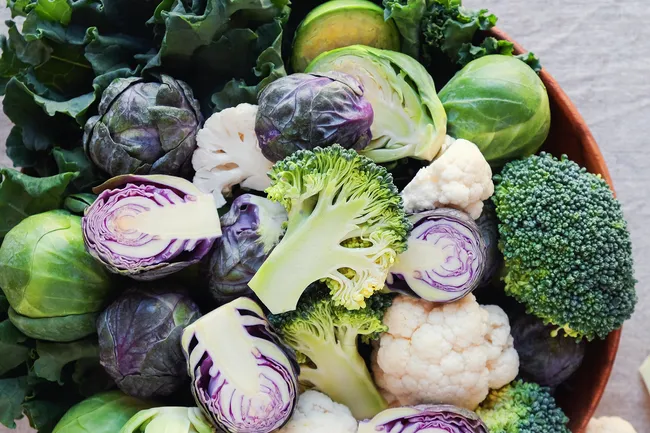
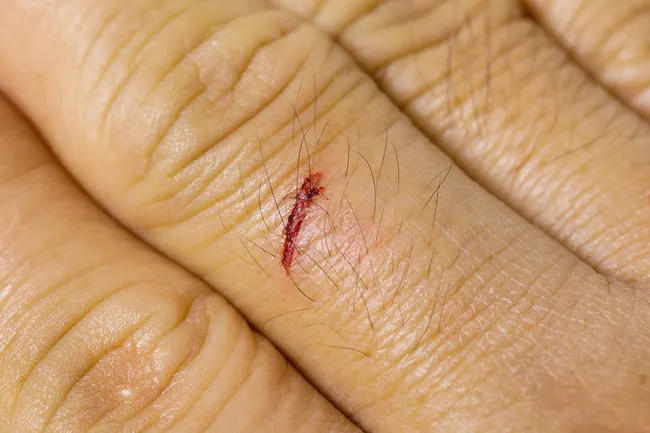

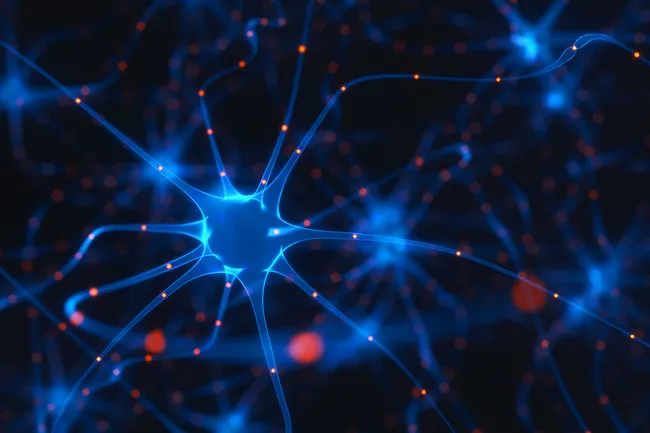
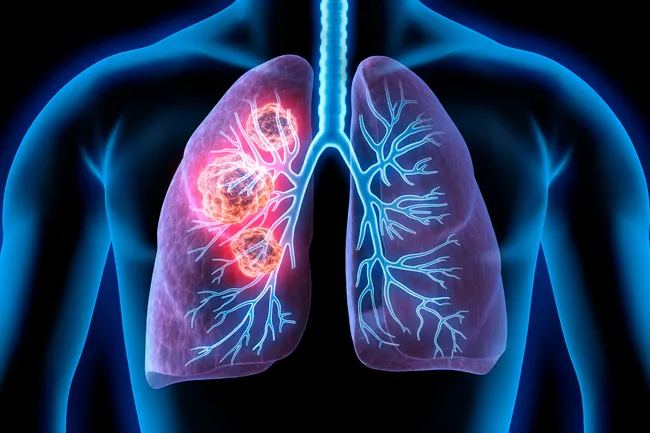

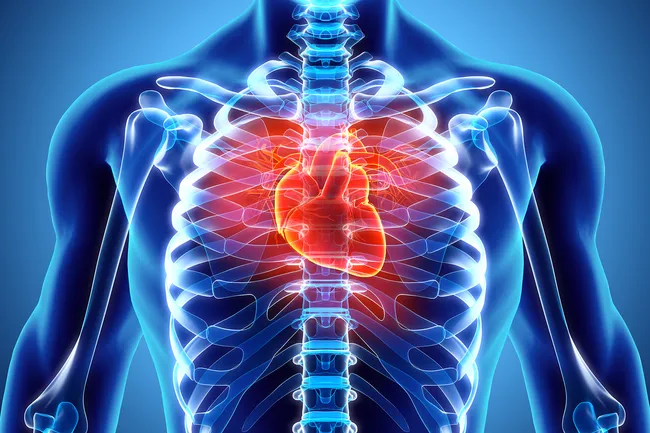
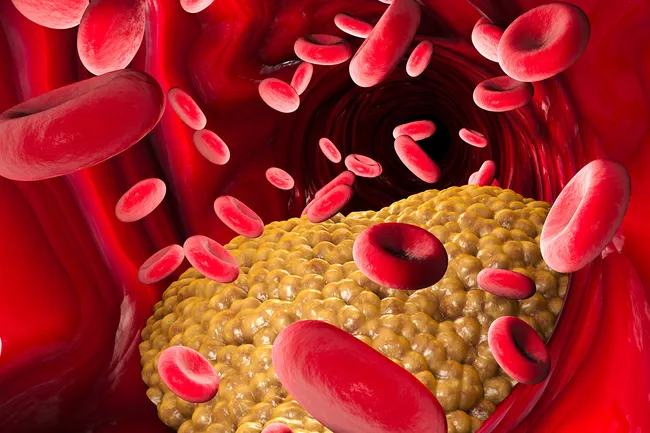











You must be logged in to post a comment.